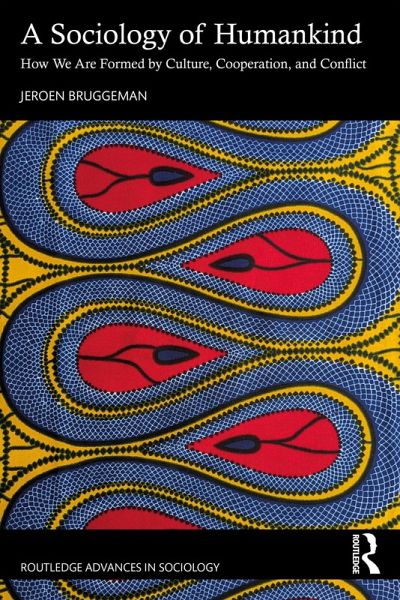
A Sociology of Humankind (eBook, PDF)
How We Are Formed by Culture, Cooperation, and Conflict
Versandkostenfrei!
Sofort per Download lieferbar
39,95 €
inkl. MwSt.
Weitere Ausgaben:

PAYBACK Punkte
20 °P sammeln!
Based upon the interdependencies of human beings as we cooperate and conflict with each other, how we share information, and how culture evolves, this book proposes a sociology of humanity covering three hundred millennia. Grounded in empirical findings from archaeology, history, lab experiments, and field studies - supplemented for precision with computational network models of cultural evolution, cooperation, influence, cohesion, warfare, power, social balance, and inequality - this is the first attempt at encompassing sociology of humankind. Informed by the theory of cultural evolution, it ...
Based upon the interdependencies of human beings as we cooperate and conflict with each other, how we share information, and how culture evolves, this book proposes a sociology of humanity covering three hundred millennia. Grounded in empirical findings from archaeology, history, lab experiments, and field studies - supplemented for precision with computational network models of cultural evolution, cooperation, influence, cohesion, warfare, power, social balance, and inequality - this is the first attempt at encompassing sociology of humankind. Informed by the theory of cultural evolution, it extends the notion that cultural evolution connects humans of all times in a giant sociocultural network, thereby yielding coherence between a great many empirical findings. It will therefore appeal to scholars of sociology and anthropology with interests in historical sociology, cultural evolution, and social theory.
Dieser Download kann aus rechtlichen Gründen nur mit Rechnungsadresse in A, B, BG, CY, CZ, D, DK, EW, E, FIN, F, GR, HR, H, IRL, I, LT, L, LR, M, NL, PL, P, R, S, SLO, SK ausgeliefert werden.













